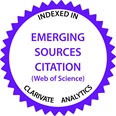Tytuł
Euro później - strata czy korzyść?
Abstract
Lately, probably as a result of the financial crisis, an opinion has appeared that strongly concluded it was a good thing that Poland and the countries of the region did not enter the eurozone and instead pursued monetary politics of their own, based on a flexible exchange rate, among other things. For it saved them from an economic catastrophe, or at the very least a deep depression. The authors, using qualitative analysis, argue that not having entered the eurozone was not and does not have to be an impairment in times of financial crisis. Furthermore, keeping a country's monetary sovereignty is costly as well, and may sometimes negatively affect economic growth and expose the country to various kinds of shocks, including speculative ones.
Abstrakt
W ostatnim czasie, prawdopodobnie w rezultacie kryzysu finansowego, pojawiła się w Polsce opinia silnie konkludująca, że dobrze się stało, iż w ostatnim okresie ani Polska, ani inne kraje regionu nie weszły do strefy euro i prowadziły własną politykę monetarną, opartą m.in. na płynnym kursie walutowym. Uchroniło je to bowiem od katastrofy ekonomicznej lub przynajmniej od głębokiej depresji. Autorzy tego tekstu dowodzą przy wykorzystaniu analizy jakościowej, że ani wejście do strefy euro, ani też przygotowywanie gospodarki do wejścia do strefy euro nie było i nie musi być zjawiskiem niekorzystnym w okresie kryzysu finansowego. Co więcej, utrzymanie suwerenności monetarnej jest też co kosztowne, a czasami może także utrudniać rozwój gospodarczy i narażać kraj na różnego rodzaju szoki, w tym także szoki spekulacyjne.
Recommended Citation
Nowak, A., & Ryć, K. (2010). Getting the euro at a later time - a waste or a benefit?. Problemy Zarządzania, 8(27), 7-19. Retrieved from https://press.wz.uw.edu.pl/ems/vol8/iss27/1
First Page
7
Last Page
19
Page Count
12
Publisher
University of Warsaw







